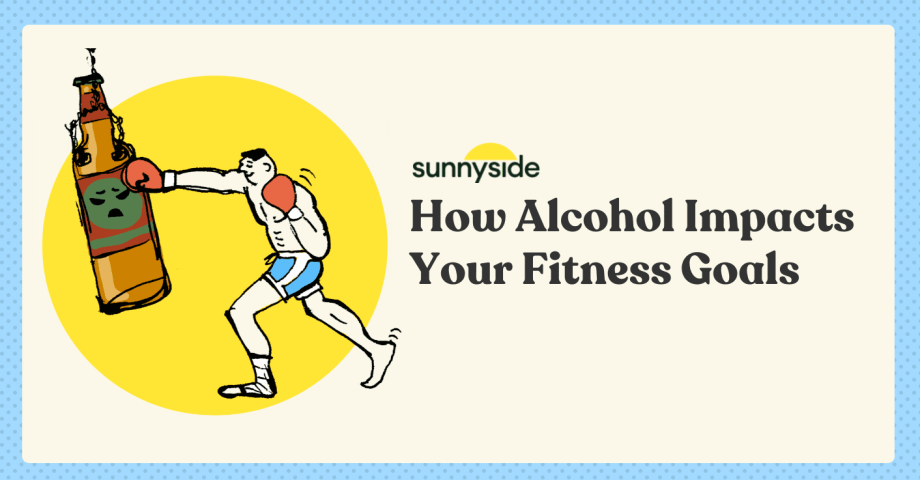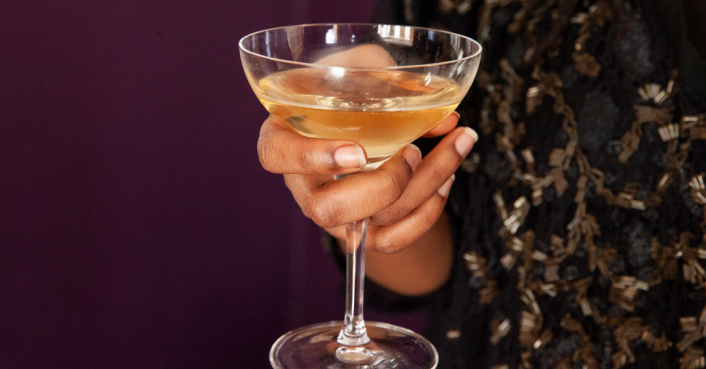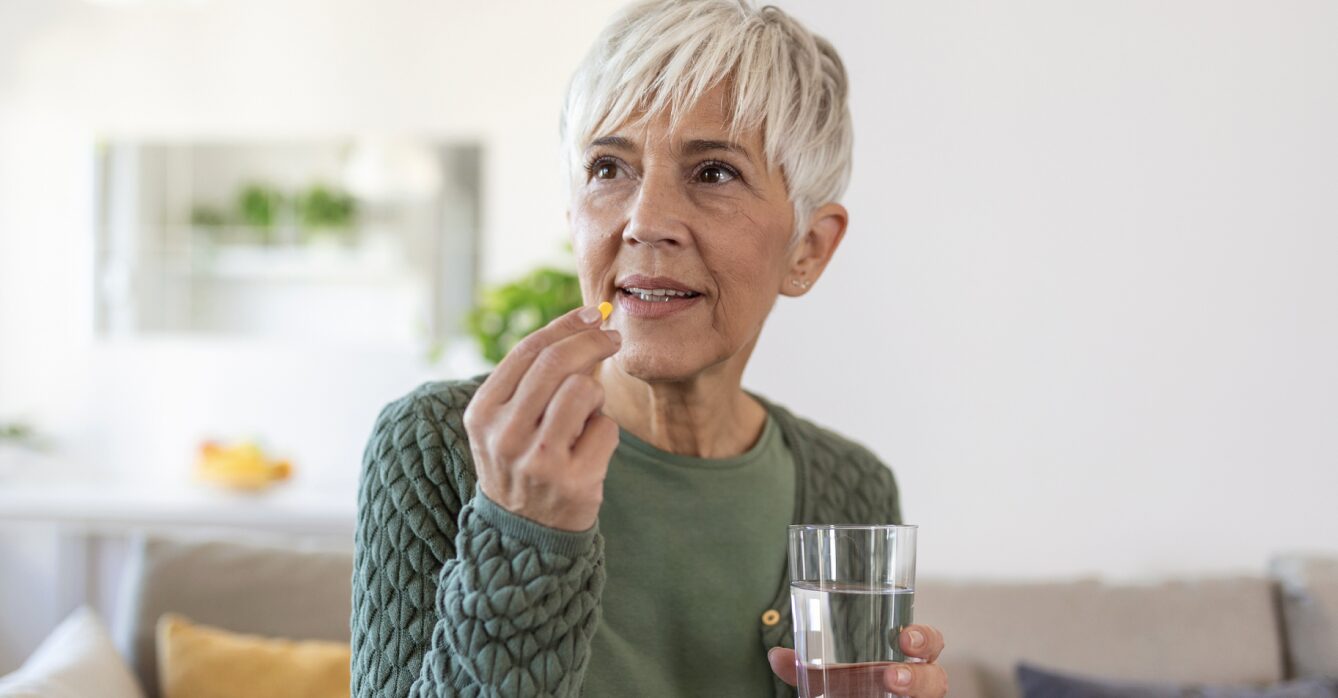Last Updated on May 25, 2023
You want to feel stronger, build more muscle, and seriously raise your energy levels — but it doesn’t seem to be happening. You might already work out regularly and you’re still not seeing the results you expected.
What’s getting in the way of reaping those max gains from your precious time spent working out?
Turns out, it’s not just how much alcohol you drink but also when you drink alcohol that affects both your workout and your fitness goals.
On top of that, an exercise routine built with your drinking habits in mind might actually help you drink less.
So while gaining strength or losing weight might be what drives you to work out, if you want to get healthier overall and cut back on drinking, your new motivator should be to work out so that you’ll want to drink less.
Read on to find out how exercise can make you drink less, how to work out more, and what really happens to your fitness goals when you have too much.
And just like a workout plan, you can create a ‘drinking plan’ to support your fitness goals and finally gain that strength and energy you’re looking for.
Start cutting back on drinkingHow Can Exercise Help You Drink Less?
Staying active can actually reduce your desire to drink. Exercising pumps your blood, improves circulation throughout your nervous system and brain, and lets you naturally release feel-good chemicals like dopamine and endorphins. Since dopamine activates your reward system to make you feel happy and endorphins help to relieve pain — it’s a two-for-one deal.
Meta-analysis studies show that people tend to drink less when they exercise regularly, especially heavy or binge drinkers. It’s one of the best ways to relieve stress, making it less likely you’ll want to drink to feel better. Instead, working out can become your go-to mood enhancer.
Just think of that ‘runner’s high’ people get addicted to — except, it’s not just for runners. Endorphins act on opioid receptors and give you that wonderful sense of bliss.
These hormones ease symptoms of depression, stress, and anxiety. They also improve your self-confidence, help to regulate your appetite, and can reduce pain and inflammation. For anyone struggling with a chronic physical or mental health condition, movement is one of the best and all-natural pain-relievers there is (along with time in nature).
How Alcohol Impacts Your Fitness Goals
Now that we know exercise can naturally improve your drinking habits, we’ll dive into the effects alcohol has on your fitness goals.
1. Fatigue, Aches, and Pains
Working out takes a toll on your body. It demands added energy to perform as well as recover. Add alcohol, and your body is forced to work even harder in order to fight inflammation and maintain peak health, which can sometimes result in:
- Headaches
- Muscle fatigue
- Slower recovery
- Increased inflammation
- Higher chance of injury
Recovery after a workout can take longer after drinking since your body needs extra rest and fluids. Your body also has a reduced ability to synthesize muscle proteins. So if you go out drinking after a workout, you might not be allowing your body to recover properly.
If you also have a chronic condition, such as arthritis, diabetes, or IBS, you can expect symptoms to worsen with heavy drinking. Your immune system is also going to be affected, meaning you might feel sick and tired more often and be unable to work out.
2. Less Sleep
After a night of drinking, it might feel like you nod off into a heavy and blissful sleep (until you wake up groggy and dehydrated). But in reality, your sleep is highly affected by alcohol. You wake up more during the night, lose REM sleep, and possibly lose precious hours just by staying up late to socialize and drink.
Any loss in sleep is going to increase inflammation and fatigue, and make it harder to manage stress. If you’re exhausted and upset, you probably won’t have the energy to work out.
3. Digestive Issues
Heavy alcohol use can lead to many digestive problems such as:
- Acid reflux — stomach acid flows back into your esophagus, which can cause heartburn, regurgitation, nausea, and difficulty swallowing.
- Heartburn — a burning sensation in your chest or throat when you have acid reflux.
- Gastritis — stomach lining becomes inflamed, causing stomach pain, nausea, and vomiting.
- Imbalanced gut bacteria — inflammation, digestive pain, disorders like irritable bowel syndrome (IBS), and mental health issues like anxiety and depression.
- Worsened digestive disorders symptoms — more frequent or painful inflammatory bowel diseases (IBD) or IBS flare-ups.
- Malnutrition (especially B vitamins) — poor nutrient absorption essential for energy production and neurological functioning, leading to fatigue and worsened mental health problems.
Of course, all of these issues will add stress and discomfort, making it very unlikely you’ll want to work out when bloated, gassy, and just plain cranky.
Plus, since heavy alcohol use kills good bacteria, your mental health is going to be severely impacted. Studies on the gut-brain axis show that imbalances make stress much harder to manage and can exacerbate symptoms or lead to mood disorders, like anxiety and depression.
4. Reduced Physical Performance and Weight Loss
With the decrease in physical performance caused by alcohol, along with the added calories, you’re unlikely to see improvements and weight loss as quickly. Alcohol can also slow down your metabolism and make you hungrier than normal.
And since drinking impairs your decision-making, a greasy pizza is likely to look a lot more appetizing without the thoughts of its negative consequences holding sway.
Alcohol also impairs coordination and puts stress on the cardiovascular system, making endurance spots especially difficult. So if working out feels too exhausting too quickly and you’re not seeing results, chances are you’re not going to be too motivated to stick to your goals.
5. Less Motivation
Overall, all these physical and mental side effects add up to less motivation to stick to your goals. If you’re tired, achy, and feeling more anxious or depressed, you’re probably not going to want to move your body — or even care about your goals. Alcohol affects your cognition, reward system, and decision-making, so any milestones you reach might not even feel so rewarding or inspiring.
Create your personalized drinking planTips to Stick To Your Fitness Goals
Fortunately, a few drinks a week aren’t going to heavily impact your fitness goals. However, even if you drink moderately, there are steps you can take to make sure alcohol doesn’t get in your way.
1. Make a S.M.A.R.T Goal
One of the biggest mistakes we all make is planning a big, vague, fantastic goal. While it may feel inspiring to think of reaching that end mark, like losing 30 pounds and finally fitting into those skinny jeans you bought three years ago, it’s not enough to get you through the obstacles you’ll face each and every day.
Your goal has to be:
Specific
Measurable
Achievable
Realistic
Timely
For example, most people sign up for the gym and plan to go four days a week when they decide it’s finally time to lose weight. But the thing is, there’s a whole lot that goes into making that happen. You have to plan snacks and meals, a regular sleep and work schedule, and maintain a family and social life — all while squeezing in time to work out. Plus, what if you secretly hate the gym? You might make a goal without really considering if it’s something you want to do.
So whenever you’re thinking about your fitness, go through the SMART steps and write down exactly what it’s going to take each and every single day to meet your goal. How will you overcome your obstacles? What’s the time and place where you’ll make it happen? Is it something you really want to do? Do you have an end date? Is there someone you can report your progress to? Research shows that giving updates seriously boosts your chances of success.
Make It Measurable
Measuring goals is one of the biggest points people miss. Habit psychology studies show that tracking your habits, along with using behavior change strategies, improves results.
It might be because habits are directed by rewards, and seeing what you achieved mapped out in front of you is rewarding, which encourages you to keep going. Even something small, like drinking an extra glass of water, can feel more rewarding when you track it. Plus, a big goal really comes down to following several smaller ones.
Remember — while a goal might help direct the type of habit you want to develop, it’s whether or not you see and feel a reward after the action that’s going to make it stick.
So remember that working out has to be enjoyable for you in order to stick to it — and that means different things for everyone. For some, it’s just going to dance or Zumba classes online, for others it’s a bit of yoga every morning or a light evening walk, and for some, it might be pumping iron at the gym. Choosing an activity, or at least letting yourself be open to trying new things if you’re not sure what you enjoy, is going to give you the best chance for long-term health.
Finally, remind yourself that there is no failure — only the opportunity to learn and adjust.
2. Plan Your Drinks
If a few glasses of evening wine or after-work beers are common for you, it’s time to think about organizing your alcohol and fitness schedule.
In general, you’re going to feel much more energized to work out if you stick to less than a drink or two the night before. So if you’re about to have a night out with friends, you could plan for a rest day or light workout the next day. Or, you think of ways to drink less, such as choosing alcohol-free drinks or getting comfortable saying, “none for me tonight”.
Sunnyside uses the psychology of planning to help you stay on track. The app helps you create weekly plans that you can monitor to keep your routine in check.
And of course, monitoring your goals is one of the best ways to help you stick to it, along with a supportive community — which you can also find on the app.
3. Drink an Equal Water to Alcohol Ratio
Whenever you drink, aim to alternate every glass of alcohol with a glass of water. You can make it sparkling, with lemon, for some added flavor and bubbly (and to perhaps make people who usually push alcohol on you think it’s a vodka soda so they leave you alone).
It’s also a great tip even if you’re at home, helping you to avoid hangovers and letting your body bounce back more easily for your next workout.
4. Add Nutrient-Dense Foods
Drinking can lead to some poor food choices, but you can make a SMART goal when it comes to your diet, too. It’s always best to choose something as simple and easy as possible.
That way, you’re more likely to make it happen and you’ll boost your self-esteem and confidence as you realize you can stick to your goals.
Here are some simple ways to increase your energy:
- Add an extra serving of vegetables to one meal a day. You can stock your freezer with an assortment of vegetables so you always have an option.
- Cook one big healthy meal a week and freeze leftovers in single portion sizes.
- Take a bag of mixed raw nuts to work or keep it in your bag or car.
- Eat a piece of fruit for at least one snack or dessert a day.
- Set up an automatic weekly delivery grocery service so healthy food is always at home.
- Blend a protein and frozen fruit smoothie to go with every breakfast or morning snack.
- Take a multivitamin and probiotic.
Eating nutrient-rich foods can even help your hangover, reducing symptoms like headaches, digestive issues, and heightened anxiety or depression.
5. Track Your Progress
Putting down your goals on paper or an app and seeing how you progress in black and white is highly underrated. Meta-analysis research shows that people who check their progress frequently, tell others about it, and record it, have a higher chance of achieving their goals.
Behavior change is about science, not willpower. Following its steps is going to get you to where you want to be. Just remember, start small on something you know you can achieve. And if that doesn’t work — change your goal.
You always have the option of reassessing when you see what works and what doesn’t — that’s part of the journey. Learn, adapt, and repeat.
The tracking section on the Sunnyside app uses this science to your advantage. Just entering your habits on a daily basis can help to train yourself to feel rewarded for every step well done, but seeing your long-term progress on the dashboard can really drive it home. Those little actions add up and create a big impact that you can see and feel.
Take the 3-minute quizHow Sunnyside Can Help
Sunnyside uses the science behind habit change and helps you achieve your goals. Our app lets you personalize your goals, track them, and get all the support you need through a community of like-minded people and trained coaches.
One of the biggest things we forget when trying to change our habits is the importance of support. Human connection makes us feel safer, which helps to reduce anxiety and depression and motivates us to go after our dreams.
Finally, remember to make your goals SMART and fun, and reassess as you go. After all, being fit doesn’t mean you have to force yourself to go to the gym for the rest of your life. Some of us prefer a more natural setting like weekend hikes and evening walks in the park for some much-needed quiet time. Try new activities and be compassionate with yourself as you go through the natural ups and downs of working towards your goals.
Sign up for Sunnyside’s free 15-day trial here to start making your personalized drinking plan, and see how cutting back can help you gain better sleep, lose calories, save money and improve your fitness goals as well as overall health.




